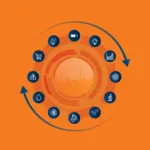
Date
TITLE
TYPE
TOPIC
-
Letter to Commission President von der Leyen – Reinforcing the EU’s Trade Defence Capacity
OthersEconomic and TradeEU Industrial PolicyIndustrial StategyTrade -
REACH Action Plan – Action 8 Introduce a new safety assessment scheme that supports an increased uptake of reliable animal free safety assessment methods
OthersChemicals ManagementREACHREACH dossier improvement action plan -
Cefic proposals for the 2025 Bioeconomy Strategy Update
Cefic PositionBioeconomyCircularitySustainability -
Cefic – UNITY study: Accelerating the circular transformation: Insights, challenges, and pathways for the chemical industry and beyond
StudyCircularity -
Key principles for value network collaboration enhancing circularity
GuidanceInnovationSafe and Sustainable by Design -
Guide for compliance with EU REACH Article 22(1): brief recommendation for keeping REACH Dossier up to date
GuidanceREACH Implementation -
Guide for compliance with EU REACH Article 22(1): deadlines for updating REACH registration dossier
GuidanceREACH Implementation -
Cefic priorities for the EU-South Africa Clean Trade and Investment Partnership
Cefic PositionEconomic and TradeEU Industrial PolicyIndustrial StategyTrade -
6th annual report | Cefic 2025 progress report of REACH Registration dossiers Action Plan
ReportChemicals ManagementREACH dossier improvement action plan -
Joint Industry Letter on EU Taxonomy – Appendix C
Joint StatementFinance & FundingSustainable Finance










